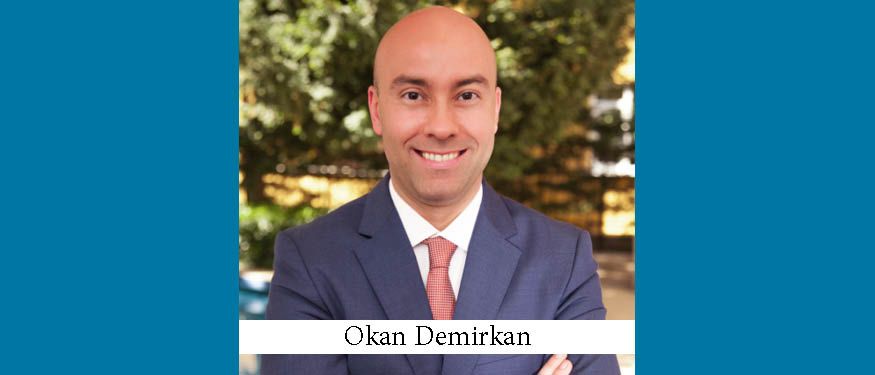In a short summary, perhaps we can divide Turkey’s past decade into two halves: The first half a seemingly flourishing economy with impressive growth rates, and the second half a consistent headline in all main international newspapers of mass protests, terror bombings, and coup d’état attempts.
While the first half clearly created an excellent environment for law firms, the second half has been a challenge. So far, most Turkish law firms seem to be surviving that challenge. In the long run, we may well see that what does not kill these law firms will make them stronger. Ironically, the same challenging years have probably been a useful tool for international firms operating in Turkey, in that they could not otherwise have experienced a better “Getting used to business in Turkey” course in such a short period of time.
A few weeks ago, I heard one of the best descriptions of how Turks operate from a Turkish chairman. He said that Turkey may not be known to be the greatest in any particular sector, but that one should always “beware of Turks!” The strength of this statement is proven in our market: you might read very tragic news about Turkey on the first page of the Financial Times, but when you turn over a few pages you will read about multi-billion dollar infrastructure projects, a new arbitration center aiming to become a regional dispute resolution hub, and an energy transit platform between Europe, the Middle East, Russia, and the Caspian.
Despite the country formally being in a “state of emergency” following the attempted coup d’état in July 2016, privatizations are still pending, including that of TP Petroleum Distribution Company, the national lottery, and several state-owned power plants. Likewise, infrastructure projects such as the Eurasia Tunnel, the Gebze-Halkali commuter train link in Istanbul, the Ovit tunnel in Northeastern Anatolia, Istanbul’s third airport, and the Baku-Tbilisi-Kars Railway have not stopped. After four very important elections in less than two years, many of us expected a very difficult 2016, and these expectations were inflated by the attempted coup d’état in July 2016, but our workload has not been affected as badly as we expected.
It would, however, be fair to say that the M&A market has been affected in recent years. The aggregate volume of M&A transactions in Turkey was USD 21 billion in 2014. This fell to USD 16.4 billion in 2015. On the other hand, the total foreign direct investment keeps growing, from USD 5.2 billion in 2013, to USD 8 billion in 2014 and USD 11.5 billion in 2015. Still, there have been some significant M&A deals in 2016. In June 2016, Mars Cinema Group was sold to CJ Group of Korea for a total of USD 800 million. The sale of Turkish satellite platform Digiturk to the Qatari-based beIN Media Group was completed in August 2016. (Although the purchase price was not disclosed by the Turkish Savings Deposit Insurance Fund, media reports suggest it was close to USD 1.5 billion.)
Turkish outbound investment has hit record highs, reaching a total deal value of USD 10 billion in 2014 and 2015. In 2016, a few Turkish law firms – including ours – had the privilege of handling outbound investment transactions, such as the acquisition by Logo Yazilim of the Romanian software company TotalSoft. There are also pending negotiations for a Turkish group’s investment in a bio-tech business in Korea. Africa is naturally a good target for Turkish construction companies, and some law firms – again, including ours – have been active in these cross-border deals in the past few years.
A few years ago, when many large international law firms set up offices in Istanbul, we expected a major impact in the market, both quality-wise and in terms of legal fees. The presence of these international players has matured the Turkish legal market, also earning us lawyers a more established role in the operations and investments of mid-size and large Turkish companies, which are increasingly becoming more used to utilizing legal advisors.
One key development for law firms has been the establishment of the Istanbul Arbitration Centre (ISTAC), which started its operations in 2015. ISTAC’s existence is bound to make an impact. I see ISTAC’s establishment as a free marketing tool for the promotion of arbitration in this country. Practitioners have welcomed the establishment of the institution, because clients are now reading about what arbitration is and its possible advantages. Until recently, the concept of arbitration was only known to law firms and in-house counsel, but now more businesspeople are familiar with it. All this will have a very positive effect for Turkey’s talented arbitration lawyers.
Another growing practice area is compliance. Having received tremendous foreign investment in the past decade, Turkish businesses are becoming increasingly more alert to the possible consequences of international rules, as well as extra-territorial laws such as the FCPA and the UKBA. Moreover, the criminal courts are developing strong precedent on white-collar crime. Many law firms have played a very important role in raising awareness on ethics rules and strict compliance standards. Their efforts are now bearing fruit, with more internal investigations being conducted in large corporations.
All in all, the Turkish legal market is surviving. While our focuses may have slightly changed, the total workload seems to be more or less the same. The law firms that learn the most from these difficult political times will ultimately benefit more from a more stable and secure climate in the near future. As our founder Mustafa Kemal Ataturk said: “There is no such thing as hopeless circumstances; it is only people that can be hopeless.”
By Okan Demirkan, Partner, Kolcuoglu Demirkan Kocakli
This Article was originally published in Issue 3.5 of the CEE Legal Matters Magazine. If you would like to receive a hard copy of the magazine, you can subscribe here.

